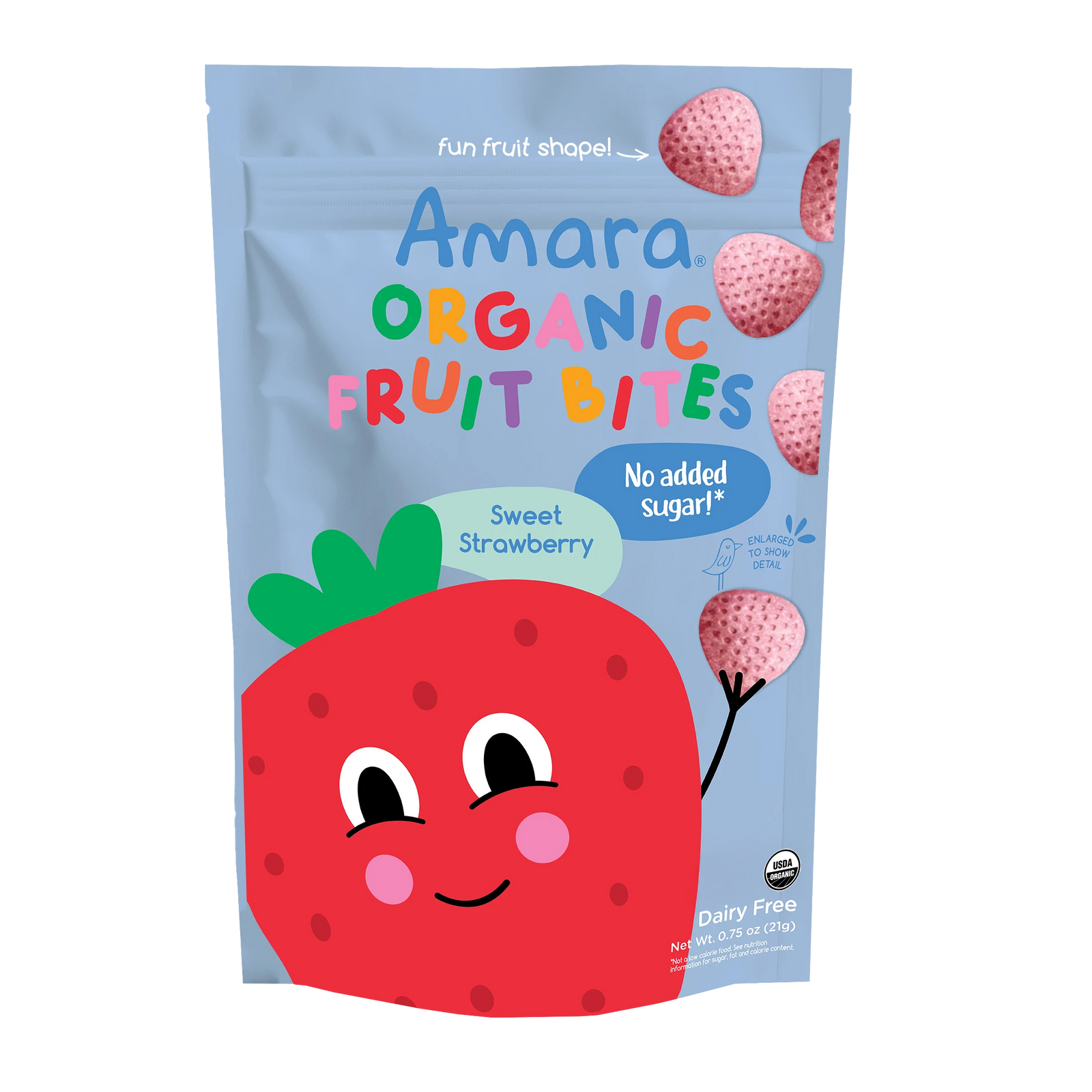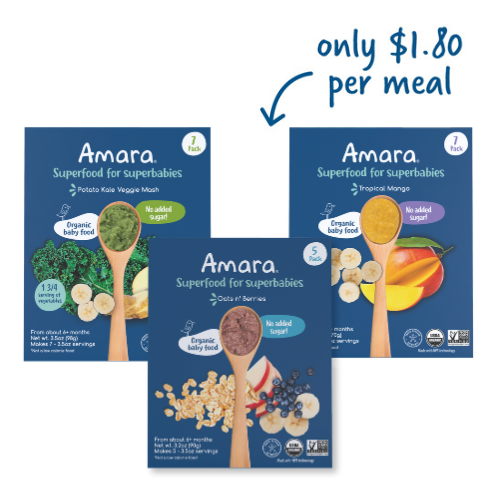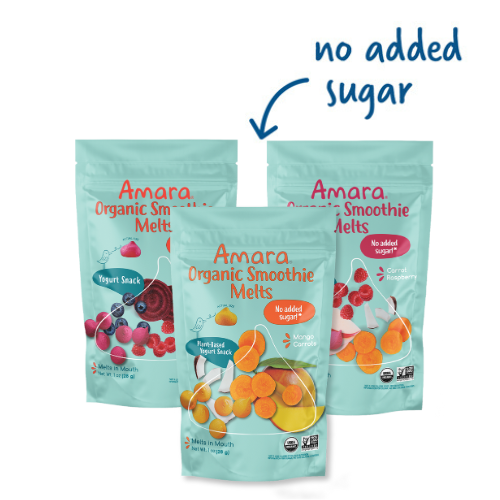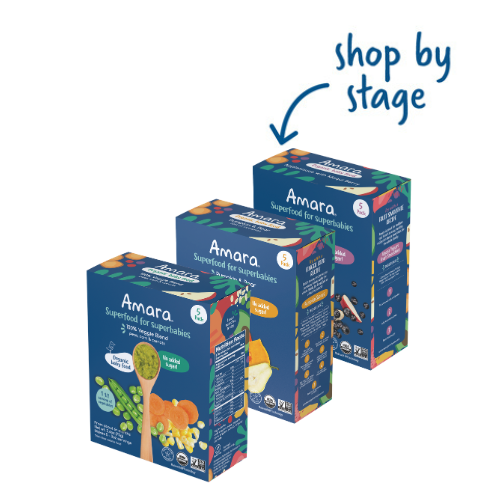Help! I think my baby is constipated...

Feeding a baby comes with a host of fears and anxieties, and a lot of counting and examining dirty diapers- or in the case of constipation, lack of. What do you do when your baby stops pooping? Or looks like he is straining to have a bowel movement? The definition of constipation differs depending on age and even throughout the world, but we’ve outlined signs to look for and what to keep in mind when thinking about your child and constipation. If you suspect your child is constipated, trust your gut and contact your child’s doctor. Constipation can be easily diagnosed and treated.
Signs of Constipation
Constipation is a growing health concern for children and adolescents with rates at about 10% in the US and 29% worldwide with an even higher prevalence in adults.
While it is not generally a serious problem in infants,it does exist. A baby may go days without pooping and seem like they are straining to poop because their abdominal muscles are still developing. Both of these signs can be normal and are not necessarily an indication of constipation alongside multiple wet diapers showing adequate hydration.
The number one sign of constipation in your baby is hard, pellet-like poop. Most likely if baby’s stools are soft, they are not experiencing constipation. If you suspect your baby is constipated or if you see any of these symptoms, contact your primary care physician:
-bloody or black stools
-hard, pellet-like stools
-distended, swollen tummy
-pain passing stools (crying, arching back)
-fewer than 1 bowel movement / 7-10 days (for breastfed infants)
Constipation in Breastfed and Formula-fed Infants
In the early weeks of life, breastfed babies are more likely to have very frequent bowel movements, up to 13 a day. That’s a lot of diaper changes! Formula fed infants, on the other hand, may experience as few as 2-3 day. This generally shifts around 2-3 months of age when formula fed infants will continue to have daily BM’s while exclusively breastfed infants may go days without pooping. This is because breast milk is so well-utilized by the infant, it leaves very little waste product. By three years of age, both sets of children have regulated to about 1-2 BMs per day.
Causes of Constipation in Infants & Young Children
Changes in behavior, diet and movement can all contribute to constipation. In babies, the introduction of formula to an exclusively breastfed baby or the introduction of solid foods to babies can both lead to mild constipation. Further, the starting of solid foods may also reveal some dietary sensitivities. The most common ones to look out for in babies are gluten and cow’s milk. If you notice your baby is having a reaction to a certain food, contact your doctor and an elimination diet might be recommended. As babies grow into toddlers, toilet training can be another trigger for constipation. In that case a vicious loop of withholding a BM and then having a painful BM can become an issue and behavioral modification / intervention may be needed to create healthy, regular eliminations in your toddler.
For young children, it is important to note the majority who suffer from constipation have functional constipation, accounting for 95% of cases. Functional constipation is when there is no physical cause, but rather a psychological or psychosomatic cause of the constipation. The peak incidence of constipation occurs between 2 and 4 years of age, when toilet training starts.

Natural Remedies and Prevention
If you suspect your baby or child is experiencing difficulty passing a stool, here are a few tips and tricks to try at home:
- Keep baby hydrated - Be sure baby is drinking enough fluids. If baby is exclusively breastfed, there is no need to offer water, but consider adding an extra feeding.Consult your doctor before adding water, juice, or any other drink to your baby's diet.
- Warm bath - Treat your baby to some restful time in the tub to help relax their sphincter and tummy muscles
- Massage - After a warm bath, lay baby on their back on a soft towel. Using a baby lotion, apply a light touch in a circular motion on and around baby’s belly. Gently fold baby’s legs in at the knees and stretch them back out a few times. Also, bend babies legs in toward their chests and gently rotate them around together in a circular motion.
- Get some exercise - If baby is crawling, play some crawling games on the floor. If baby is not mobile yet, do some tummy time exercises. The light pressure on the tummy can be beneficial to get things moving.
- Feed baby fiber-rich foods – Keeping your baby’s diet rich in fiber with complementary foods suitable for their age and development is a great way to prevent constipation. Incorporate fruits such as apples, pears, and prunes. Offer leafy greens and veggies like kale and pumpkin, as well aswhole grain infant cereal. Finally legumes such as peas and beans will all help with a baby’s developing gut.
Looking to get enough fiber into your baby’s diet? Teach them to love their veggies from the very first bite. At Amara, we offer an Introduction to Veggies Pack, 30 days worth of vegetable purees for your little, for under $3 / day.
Our baby food is designed to be mixed with breast milk, formula or water to adjust the consistency to your baby’s liking and provide a familiarity which helps with the introduction of new flavors and textures.
Raising a healthy eater is priceless. We make it easy.
Check out our Introduction to Veggies, packed with peas, pumpkin, kale and all the good stuff your baby will love for life.Learn more HERE.
References:
NA Afzal et al., Constipation in children, Ital J Pediatr. 2011; 37: 28
JMD Ho et al., Chronic constipation in infants and children, Singapore Med J. 2020 Feb; 61(2): 63–68
- Kiefte‐de Jong, Role of dietary patterns, sedentary behaviour and overweight on the longitudinal development of childhood constipation: the Generation R study, Matern Child Nutr. 2013 Oct; 9(4): 511–523
S Rajindrajith et al., Childhood constipation as an emerging public health problema, World J Gastroenterol. 2016 Aug 14; 22(30): 6864–6875
I Xinias & A Mavroudi, Constipation in Childhood. An update on evaluation and management, Hippokratia. 2015 Jan-Mar; 19(1): 11–19
 Amara's Chief Nutritionist: Sonia A. Schiess, PhD in Nutrition, specialized in the introduction of solids and liquids to infants. Sonia's passion started when she was studying nutrition and dietetics in university, completing a post degree in Human Nutrition. Later on, she completed her PhD as a nutritionist, with a focus on introducing food in the first year of a baby's life. Her wide experience gives her a unique perspective, drawing from her time in clinics, hospitals, independent consulting and university research. She's authored several papers including "Introduction of complementary feeding"; "Introduction of potentially allergenic foods in the infant's diet during the first year of life" and "Intake of energy providing liquids during the first year of life" in five European countries. The combination of Sonia's science and our chef's magic ensures every Amara product is not only optimized for your baby's health but is delicious as well.
Amara's Chief Nutritionist: Sonia A. Schiess, PhD in Nutrition, specialized in the introduction of solids and liquids to infants. Sonia's passion started when she was studying nutrition and dietetics in university, completing a post degree in Human Nutrition. Later on, she completed her PhD as a nutritionist, with a focus on introducing food in the first year of a baby's life. Her wide experience gives her a unique perspective, drawing from her time in clinics, hospitals, independent consulting and university research. She's authored several papers including "Introduction of complementary feeding"; "Introduction of potentially allergenic foods in the infant's diet during the first year of life" and "Intake of energy providing liquids during the first year of life" in five European countries. The combination of Sonia's science and our chef's magic ensures every Amara product is not only optimized for your baby's health but is delicious as well.









Leave A Comment